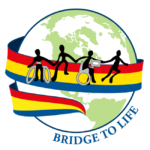
Bridge to Life Services, a division of The Bridge School, in collaboration with The Children’s Home of Pittsburgh, is hosting a conversation series with Dr. Christine Roman Lantzy and other experts in CVI, language development and augmentative and alternative communication (AAC).
Series Overview
- The six-month long series will provide an overview of the essential elements to understand and meet the needs of children/students with CVI from infancy through the school years. The series will be a virtual, “real time” experience with opportunities for participation and interaction.
- Each cohort will be limited to 15-20 participants. Participants are expected to be present for the virtual classes. One of the objectives of this experience is to build professional networks, so cameras are to be turned on so that members can become familiar with their colleagues.
- Each “conversation” will last for approximately 45 minutes with an additional 15 minutes for questions and answers. Questions and comments on assignments can also be submitted prior to and/or after the conversation using the online learning management system. These questions and comments will be addressed during each session.
- Class dates will be every other Thursday at 12 pm –1 pm PT/2 pm – 3 pm CT/3 pm – 4 pm ET during the Spring Semester 2025, starting on Jan. 16, 2025.
2025 Spring Class Schedule:
- Jan 16
- Jan 30
- Feb 13
- Feb 27
- Mar 13
- Mar 27
- Apr 10
- Apr 24
- May 8
- May 22
- Jun 5
- Jun 19
Learning Objectives:
On completion of this series, you will be able to:
- Discuss the impact of CVI/AAC and associated disabilities on child development
- Develop an assessment and intervention plan based on The CVI Range
- Discuss why early identification of CVI is so important and why children with CVI are expected to improve in their use of functional vision over time.
- Explain why Interprofessional Collaborative Practices (IPCP) and family-centered approaches are critical in the management of children with CVI over time.
- Give examples of classroom interventions
- Accommodations
- Environmental
- Teaching Strategies
- Determine the appropriateness of intervention strategies, tools, and materials for children with CVI/AAC
Who this series is for:
- Professionals and/or others who work with individuals who have CVI and use AAC
- Parents interested in learning more about the challenges associated with CVI and AAC
- Individuals who want to increase their understanding of the impact of CVI especially with individuals who use AAC
Series Requirements:
- Students will be expected to attend in-person virtually for the live sessions.
- Participants will have assigned readings and required viewing of online resources prior to each session.
- Participation is required whether through online discussions or direct interaction within the conversation’s framework.
- Participants who attend and have engaged actively with the online course will receive a certificate of completion with Continuing Education Units which can be used to evidence professional learning. To receive a certificate with Continuing Education Units, participants will be required to attend all 12 out of 12 lectures to earn 12 CEUs.
- No personal or professional recording (video or audio) of the sessions is permitted. The material presented is the intellectual property of the presenter.
- Required readings will come from the following:
- Roman Lantzy, C.A. Cortical Visual Impairment: An Approach to Identification, Assessment, and Intervention. APH Press, 2018.
- Roman Lantzy, C.A. Cortical Visual Impairment: Advanced Principals. APH Press, 2019.
- Roman Lantzy, C. A. & Tietjen, M. Sensory Balance: An Approach to Learning Media Planning for Students with CVI. Perkins Press, 2020.
Series Fee:
$1000
Series Topics
- Intro to CVI & Characteristics
- Research
- CVI Range & in Practice
- Integrating CVI Range Results
- CVI Schedule
- Intervention Supports
- AAC & CVI


